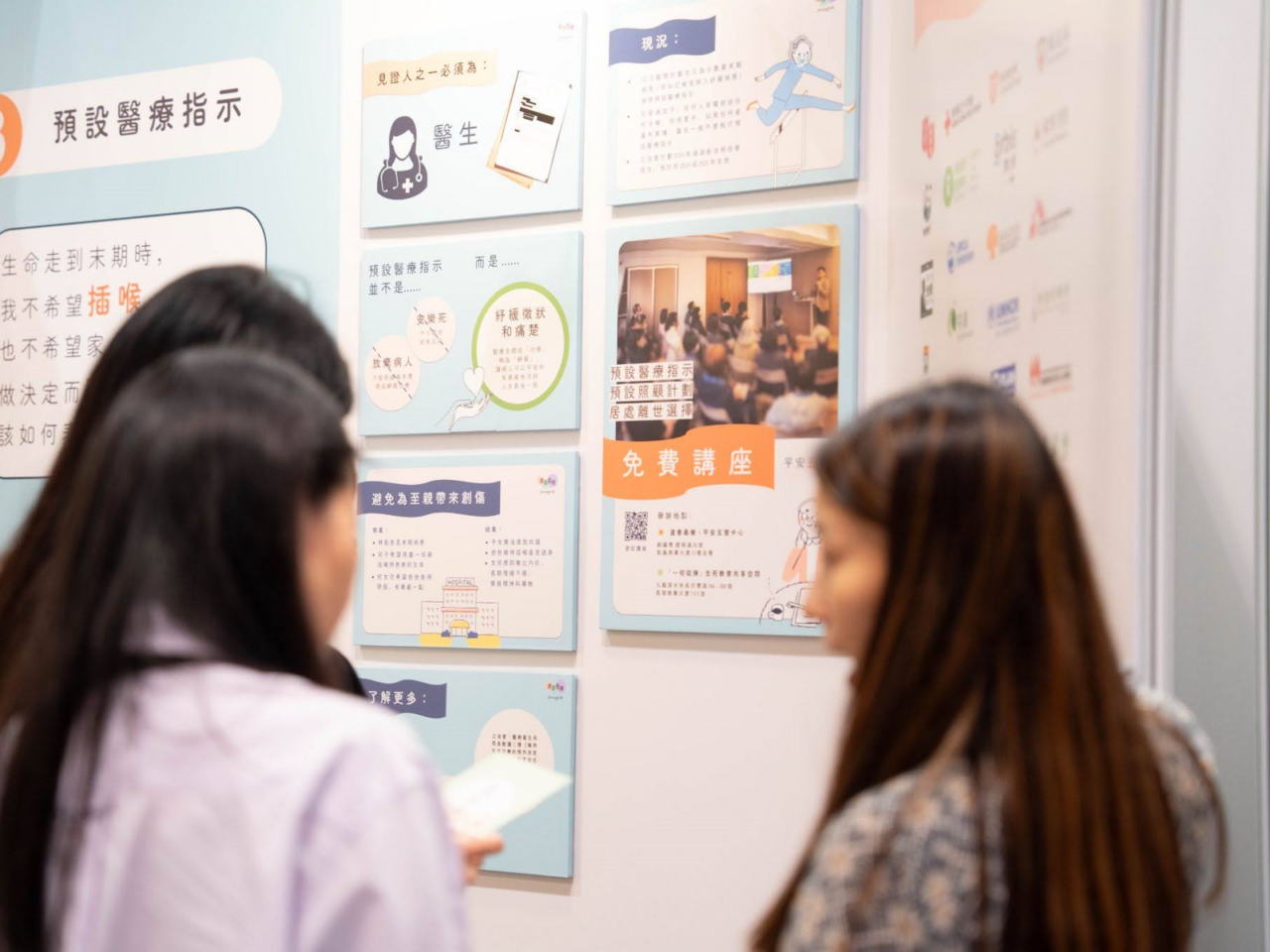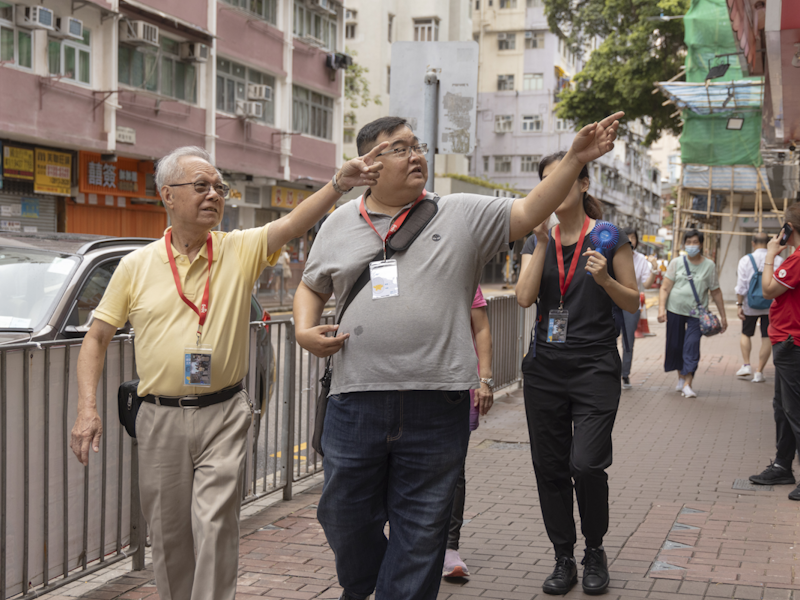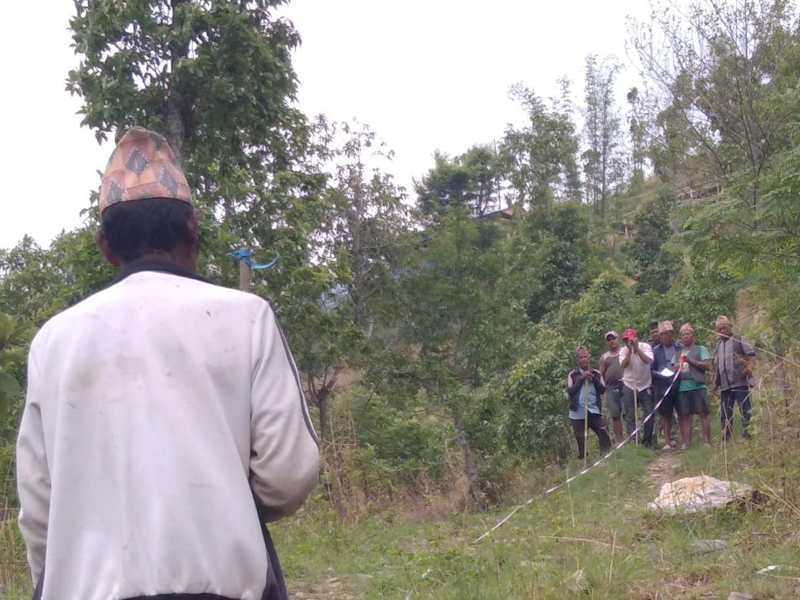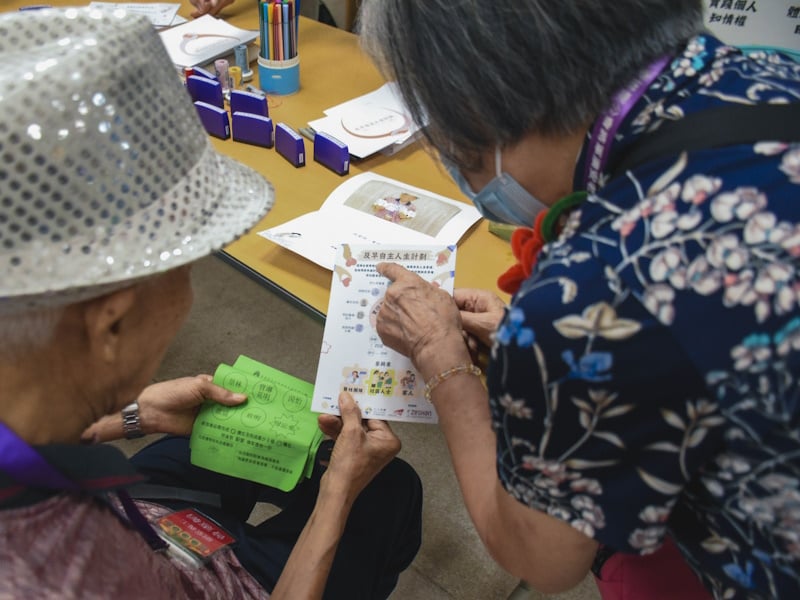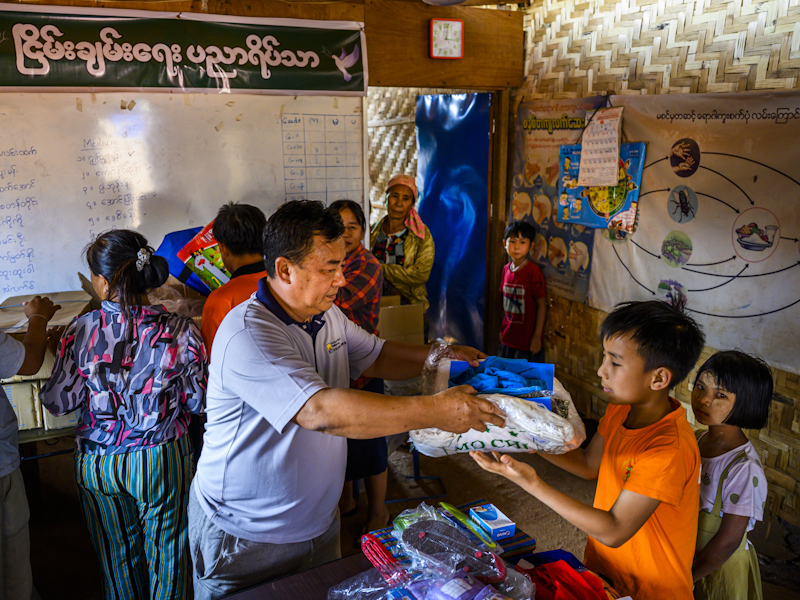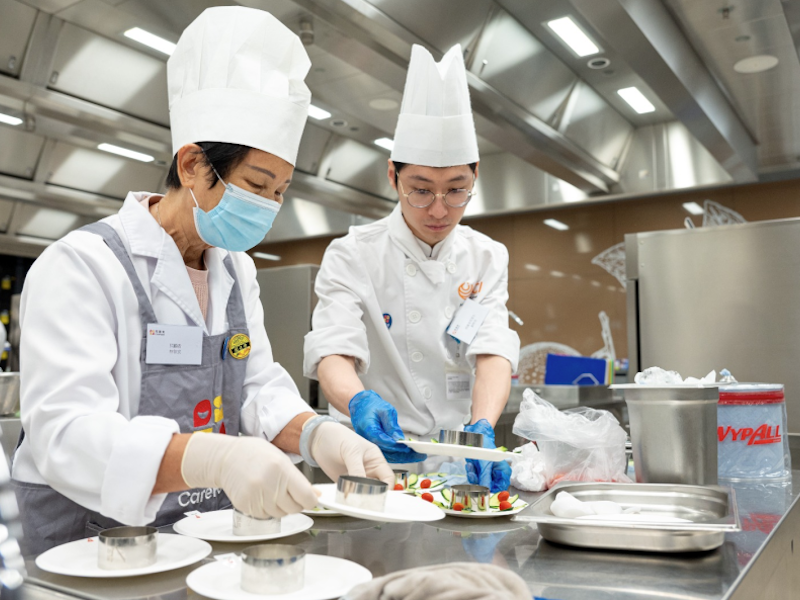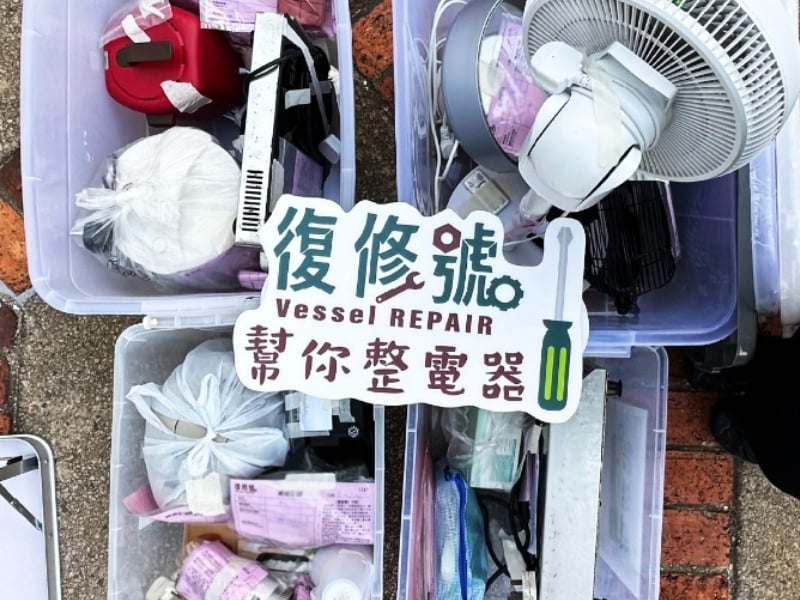
Waste of Electrical & Electronic Equipment (WEEE), containing toxic and chemical components, is among the world’s fastest-growing and most complex types of solid waste. Its disposal and improper handling pose significant risks to the environment. The rapid increase of WEEE is, according to the United Nation’s The Global E-waste Monitor 2020 report, fueled by high consumption rates, short product life-cycles, and inadequate repair options. In Hong Kong, 21.6 kg of WEEE is produced per person per year on average, which is three times that of other Asian cities. Globally, Hong Kong is among the top 15 regions in WEEE generation. Although there are now regulations on recycling certain types of WEEE, many small home appliances, such as fans, hairdryers, induction cookers, and microwaves, are often discarded when old or broken. While the GREEN@COMMUNITY scheme of the Environmental Protection Department does recycle small home appliances, participation is not mandatory. Besides, this scheme only promotes recycling, but not repair.
The waste and handling of electrical resources is receiving increasing attention from different sectors, with Repair & Reuse playing a key role among the various waste prevention solutions adopted. In November 2024, a seminar titled “The Era of Repair” was organised by Vessel REPAIR, an initiative under the environmental charity Community Leap, with funding from ZeShan Foundation. Various repair-related stakeholders shared their thoughts on WEEE, repair, and the circular economy. The results and analysis of the “Survey on Public Practices for Buying, Using, and Disposing of Home Appliances” were also released. The survey found that Hong Kong families threw away some 1.5 million small home appliances on average every year, 790,000 of which were directly discarded; fewer than 30% of respondents said that they would arrange recycling. It revealed that Hong Kong people, when handling small home appliances, faced many pain points and a lack of repair support. Most respondents agreed that local policies and producers did not provide adequate support for recycling small home appliances and reducing WEEE, and that setting up repair stations and organising repair training could cut down WEEE. Vessel REPAIR believes that there is a need to introduce more circular economy practices into Hong Kong, such as Repair, Reuse, and the Right to Repair. It suggests that Repair should be included in the agenda and discussion on reducing WEEE. Education and promotion are also important for raising public awareness and encouraging “Repair instead of Purchase” to cut down WEEE. In 2018, Community Leap’s Vessel REPAIR introduced the idea of “Repair Café” from Amsterdam, the Dutch capital, into Hong Kong, setting up the city’s first Community Repair Station. With a bottom-up approach, it aims to encourage citizens to take the initiative in tackling WEEE and to promote a culture of “Repair instead of Purchase”. The Community Repair Station brings together Community Repair Volunteers who are older adults passionate about the environment. By offering repair services of small home appliances to local residents, the initiative extends the life-span of resources and alleviate the problem of WEEE. By redistributing refurbished appliances, Community Leap can match the resources to help those in need and helps build a green community of mutual aid as a long-term outcome. The repair services have been very popular since its launch. In 2024, Vessel REPAIR received funding from ZeShan Foundation to launch the “Electrical Appliances Second Life Workshop” programme, setting up a second repair station in Kowloon. With a pay-as-you-wish model, it aims to help local residents resolve issues with appliances, reduce the waste of electrical resources, and gradually change the consumer culture of discarding the old and buying the new. Besides extending the existing repair services, the programme also includes organizing professional certificate training on repairing small home appliances in order to enable more silver-age community members becoming Community Repair Master to continue putting their talents into contributing to the community and the environment. ‘Big Fai’, who has volunteered at Vessel REPAIR for three years, said that what he enjoyed the most at the repair station was the warm sense of community. He also said that successfully fixing appliances and saving them from the landfill not only gave him enormous satisfaction, but also helped community members keep alive the associated memories and sentiments. These were the reasons that kept him going. Seen in this light, what is being repaired is not simply resources and the environment, but also, importantly, values and beliefs. Community Leap
Waste of Electrical & Electronic Equipment (WEEE), containing toxic and chemical components, is among the world’s fastest-growing and most complex types of solid waste. Its disposal and improper handling pose significant risks to the environment. The rapid increase of WEEE is, according to the United Nation’s The Global E-waste Monitor 2020 report, fueled by high consumption rates, short product life-cycles, and inadequate repair options. In Hong Kong, 21.6 kg of WEEE is produced per person per year on average, which is three times that of other Asian cities. Globally, Hong Kong is among the top 15 regions in WEEE generation. Although there are now regulations on recycling certain types of WEEE, many small home appliances, such as fans, hairdryers, induction cookers, and microwaves, are often discarded when old or broken. While the GREEN@COMMUNITY scheme of the Environmental Protection Department does recycle small home appliances, participation is not mandatory. Besides, this scheme only promotes recycling, but not repair.
The waste and handling of electrical resources is receiving increasing attention from different sectors, with Repair & Reuse playing a key role among the various waste prevention solutions adopted. In November 2024, a seminar titled “The Era of Repair” was organised by Vessel REPAIR, an initiative under the environmental charity Community Leap, with funding from ZeShan Foundation. Various repair-related stakeholders shared their thoughts on WEEE, repair, and the circular economy. The results and analysis of the “Survey on Public Practices for Buying, Using, and Disposing of Home Appliances” were also released. The survey found that Hong Kong families threw away some 1.5 million small home appliances on average every year, 790,000 of which were directly discarded; fewer than 30% of respondents said that they would arrange recycling. It revealed that Hong Kong people, when handling small home appliances, faced many pain points and a lack of repair support. Most respondents agreed that local policies and producers did not provide adequate support for recycling small home appliances and reducing WEEE, and that setting up repair stations and organising repair training could cut down WEEE. Vessel REPAIR believes that there is a need to introduce more circular economy practices into Hong Kong, such as Repair, Reuse, and the Right to Repair. It suggests that Repair should be included in the agenda and discussion on reducing WEEE. Education and promotion are also important for raising public awareness and encouraging “Repair instead of Purchase” to cut down WEEE. In 2018, Community Leap’s Vessel REPAIR introduced the idea of “Repair Café” from Amsterdam, the Dutch capital, into Hong Kong, setting up the city’s first Community Repair Station. With a bottom-up approach, it aims to encourage citizens to take the initiative in tackling WEEE and to promote a culture of “Repair instead of Purchase”. The Community Repair Station brings together Community Repair Volunteers who are older adults passionate about the environment. By offering repair services of small home appliances to local residents, the initiative extends the life-span of resources and alleviate the problem of WEEE. By redistributing refurbished appliances, Community Leap can match the resources to help those in need and helps build a green community of mutual aid as a long-term outcome. The repair services have been very popular since its launch. In 2024, Vessel REPAIR received funding from ZeShan Foundation to launch the “Electrical Appliances Second Life Workshop” programme, setting up a second repair station in Kowloon. With a pay-as-you-wish model, it aims to help local residents resolve issues with appliances, reduce the waste of electrical resources, and gradually change the consumer culture of discarding the old and buying the new. Besides extending the existing repair services, the programme also includes organizing professional certificate training on repairing small home appliances in order to enable more silver-age community members becoming Community Repair Master to continue putting their talents into contributing to the community and the environment. ‘Big Fai’, who has volunteered at Vessel REPAIR for three years, said that what he enjoyed the most at the repair station was the warm sense of community. He also said that successfully fixing appliances and saving them from the landfill not only gave him enormous satisfaction, but also helped community members keep alive the associated memories and sentiments. These were the reasons that kept him going. Seen in this light, what is being repaired is not simply resources and the environment, but also, importantly, values and beliefs. Community Leap
Smart Ideas to Give Electrical Appliances a Second Life
Executive Director
Allen Yuen
Executive Director
Allen Yuen









